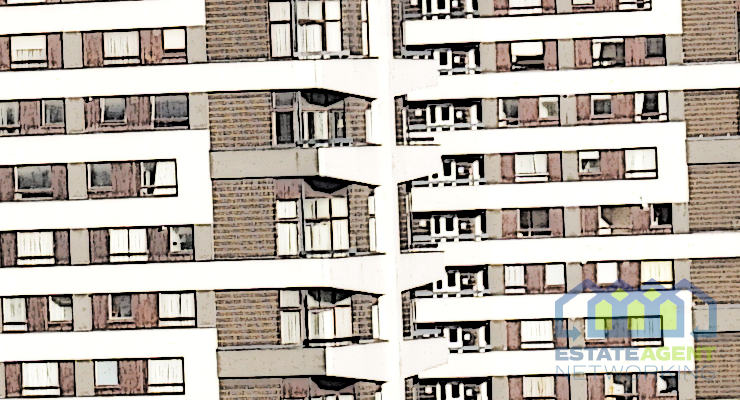What does Residential Block Management entail?
Block Management is one of those things that sound simple, it should be simple but for many reasons it isn’t.
Cities in the Sky
The UK has seen its skylines change dramatically since the Second World War as the country began to rebuild itself. This ‘quick-fix’ solution began in Essex where the first residential block was built in 1951. At first this revolutionary idea was celebrated as it provided larger living space for less money but without the right skills to maintain these cities in the sky they deteriorated and less than two decades later popularity fell and they became known as ‘slums in the sky’.
Trends come-and-go and high-rise homes are back in demand due to a number of reasons.
- The population in the UK is continually increasing and there isn’t enough room on the ground to build, providing more homes in the sky is the only option
- These blocks of flats are no longer built on the cheap, they aren’t a quick solution, they are here for the future
You don’t need to be an industry expert to see this trend. Take a look at the rooftops in any major city across the UK, they are higher than ever. You will notice that it is full of concrete blocks but there are also cranes building for the future too.
The quicker these buildings can be completed, the more homes will be made available, easing the housing crisis, however managing these properties requires different skills to the standard home. Whether these blocks of flats are standard residential or luxury apartments with a concierge, gym or cinema it is important that they are being managed and maintained in a professional manner.
Managing Houses and Maintaining Blocks
There are many differences between being a landlord of a family home and landlord/freeholder of a block of flats.
Residential homes
- Landlord owns the property
- They let it out to a tenant who pays rent
- Maintenance is usually taken out by either the landlord;
- Or a letting agent who provides ‘full management services’
- With tenants coming or going it is in the interest of the landlord to ensure that the property is maintained to ensure that the investment remains valuable.
Residential blocks for flats
- Landlord/freeholder owns the building and the ground it sits on
- The residents in the flat are either tenants or leaseholders
- Tenants have the same rights that they would if they were renting a house
- A leaseholder has the right to live in the property for a set term, they never own it, unlike a homeowner
- In a block of flats there are communal areas which need to be maintained
- Landlords/freeholders hire management agents (block managers) to maintain these areas (lifts/hallways/car parks/doors) on their behalf to ensure that the building doesn’t lose value
- Block managers redeem maintenance costs with a non-profit service charge fee to the leaseholder
- The service charge must be split fairly amongst leaseholders
- Leaseholders are often charged ground rent by the freeholder, this will be added in the service charge
Maintenance and Block Management
Whether you manage one block of flats or an estate with multiple blocks it is highly likely that you face similar problems. It is essential to deliver a professional, efficient and cost-effective service for both the freeholder and the residents.
Every block is different and this brings a variety of issues, some of those can be routine activities such as refuge collections or general wear and tear however the job of a block manager gets more challenging when the unexpected happens.
When the weatherman struggles to predict if we can expect an Indian summer or an arctic winter how can you prepare a service charge budget that caters for all climates and scenarios such as flooding or gale-force winds, causing damage to property.
Power to the Leaseholder
The block manager works on behalf of the freeholder whilst the leaseholder pays for the maintenance costs. It is important that work is done as cost-effective as possible to keep the service charge budget to a minimum. If more than half of the leaseholders feel that they aren’t getting value-for-money they can file for Right to Manage, giving them the opportunity to either maintain the block themselves or choose their own provider.
Service Charge Budgets
This is where good and bad block managers are divided.
The service charge budget is a complex area for several reasons, experience helps but you never know if there is a surprise around the corner. This is generally forecast for a 12 month term based on actuals from the previous period, if available.
It is important that costing is split equally amongst the residents which can cause a headache when you have flats of different sizes in your blocks.
There are 3 areas that need to be accounted for when creating a service charge budget.
- Day-to-Day expenses
- Cyclical expenses
- Reserve funds
Day-to-Day Expenses
There is a lot more work that goes into block management on a daily basis than you might think and costs need to be covered in the service charge budget.
This can include:
- Staff salaries
- Buildings Insurance
- Ground Rent
- Cleaning
Cyclical Expenses
This is the low-cost maintenance of the non-residential areas of the building.
This can include:
- Wear and tear
- Decorating
- Lift maintenance
- Gardening
Reserve Funds
This is often called a sinking fund as it is where money is kept to cover long-term projects or unexpected high-cost maintenance of the building. This is often the hardest area to budget for as you can plan to take on a large renovation but you can’t prepare for flooding.
This can include:
- Weather related damage
- Structural work on the external parts of the building (roof replacement)
- Replacement of internal elements (lift)
At the end of each term both the freeholder and residents expect reports that clearly state where the money has been spent and what the expected budget will be for the forthcoming period. If there is any money left over the leaseholder can either ask for a refund or for the money to be rolled-over to the next term.
What is the Key to being a Successful Block Manager?
- Work efficiently
- Communicate with freeholders, residents and suppliers with clarity
- Maintain the building to the highest standard
- Provide transparency in your reports
- Deliver what you promise
- Offer value-for-money in your services
Need some help?
It isn’t easy managing one block, if you have a large portfolio then it can be extremely challenging. Decorus for Sage is property management software with a difference. Users can manage their blocks (either one site or several, across different sites), leaseholders and maintenance jobs in 1 solution whilst its integration with Sage delivers financial data in a format recognised by over 90% of accountants without any additional work.








